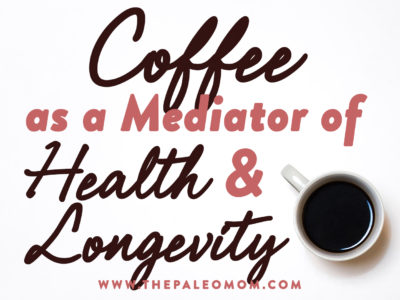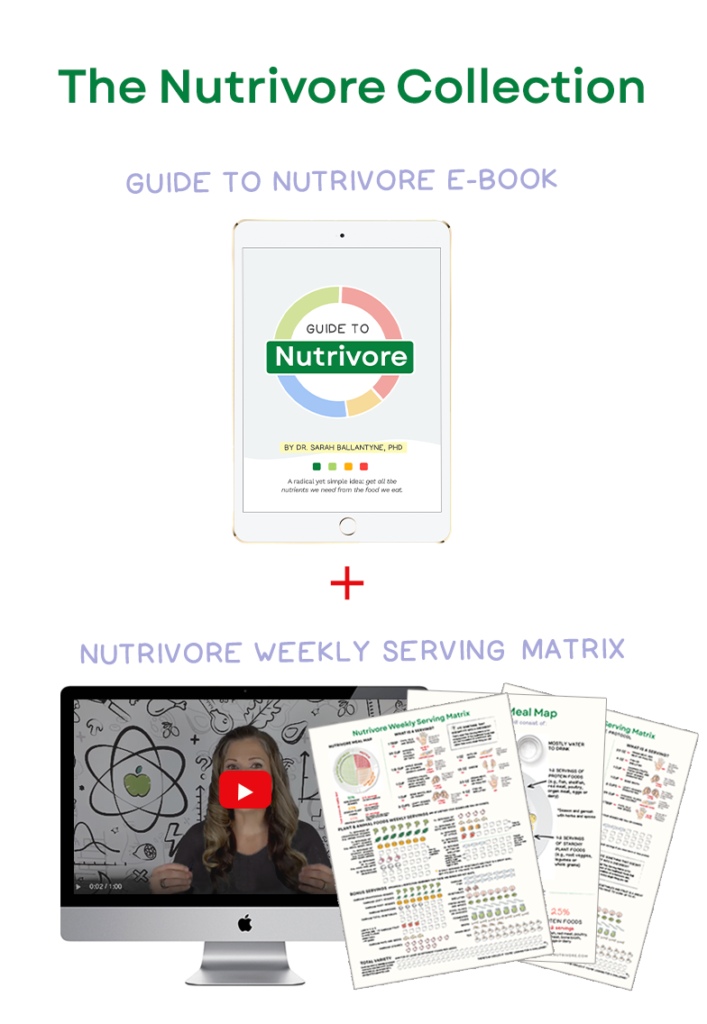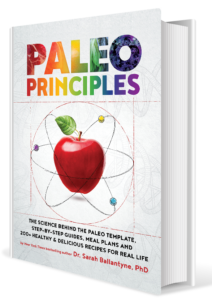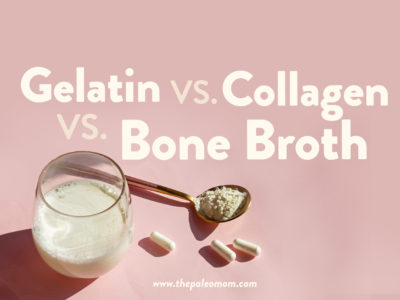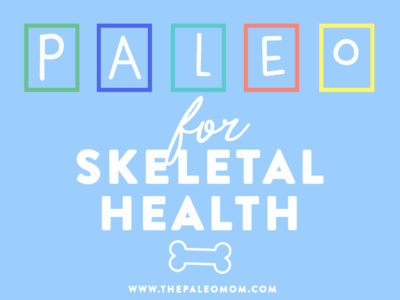SCIENCE SIMPLIFIED:

- There is good evidence that regular coffee consumption decreases risk of cardiovascular disease, type 2 diabetes, Parkinson’s disease (and maybe other neurodegenerative diseases like Alzheimer’s), non-alcoholic fatty liver disease, liver fibrosis, cirrhosis of the liver, gallstone disease and some cancers!
- All-cause mortality data point to 3 8-ounce cups of coffee per day as being optimal for decreasing disease risk.
- These benefits are attributable to some exciting antioxidant phytochemicals in coffee (including chlorogenic acids, trigonelline, kahweol, cafestol and melanoidins) and unique types of fiber that benefit the gut microbiome (arabinogalactans and galactomannans).
- Note, that for some people with autoimmune disease, coffee can be inflammatory
RELATED READING:
- Coffee and Autoimmune Disease
- Genes to Know About: Caffeine Metabolism
- The Amazing World of Plant Phytochemicals: Why a diet rich in veggies is so important!
- What Is the Gut Microbiome? And Why Should We Care About It?
Coffee is the second most commonly-consumed beverage after water in the world. In the United States, the majority of US adults consume more than one cup per day. Myth states that the coffee plant was discovered by a goat herder about 850 CE in North Africa, and it was introduced to Europe around the 16th century. Since then, coffee has become an important international trade.
In the health and wellness community, coffee has been a hot topic for a long time, with both advocates and voices of opposition, and the rest of us sipping away at what we assume is a guilty pleasure. But, there is a TON of compelling evidence that coffee is good for us, well, most of us… there are some caveats.
From Plantation to Cup
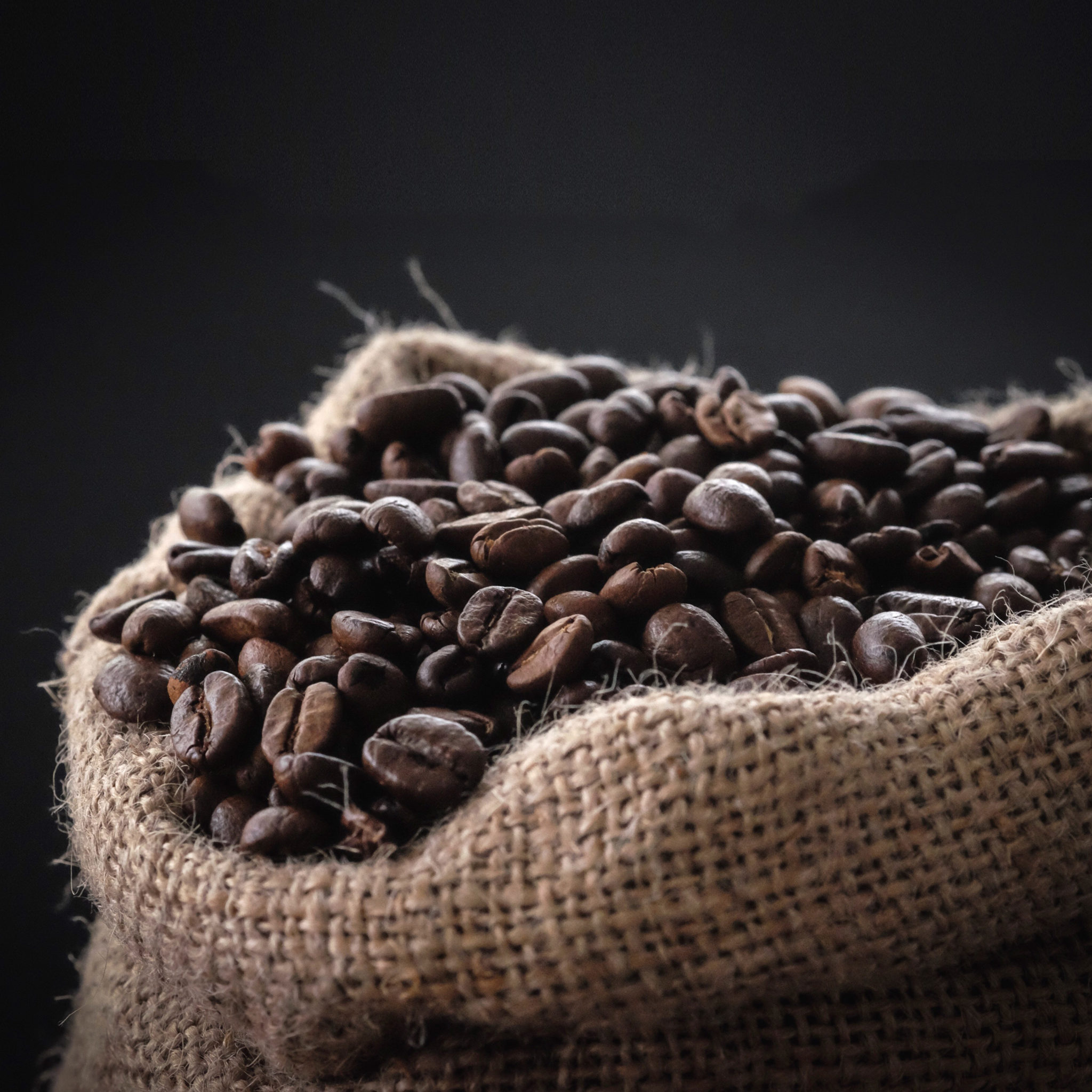 Coffee is cultivated by plantations that exist all over the world. The most common species of coffee are Coffea arabica and Coffea robusta. For each of these species, there is a difference in their optimal/preferred growing climate, appearance, chemical composition, and resulting coffee beverage. Reports say that the Arabica coffee is generally a “superior cup” quality- and aroma-wise, but Robusta appears to have a stronger flavor with more antioxidants and caffeine.
Coffee is cultivated by plantations that exist all over the world. The most common species of coffee are Coffea arabica and Coffea robusta. For each of these species, there is a difference in their optimal/preferred growing climate, appearance, chemical composition, and resulting coffee beverage. Reports say that the Arabica coffee is generally a “superior cup” quality- and aroma-wise, but Robusta appears to have a stronger flavor with more antioxidants and caffeine.
So, how does coffee get into our cup? The process starts when coffee fruit matures to bright red berries. Once the fruit is picked, the outer pulp, called the pericarp, is removed by either soaking the fruit in water or by allowing it to dry and then removing the pericarp. The product is then what we call green coffee beans. Green coffee beans are known for their rich antioxidant content, but there are also additional antioxidants created in the roasting process.
Green coffee beans can be roasted on-site at the plantation or, perhaps, at your local coffee shop. During the roasting process, beans are roasted at temperatures from 350 F to 480 F for anywhere from 2 to 25 minutes. With this, the chemistry of the beans are greatly transformed. Fresh-roasted beans (compared with beans that may have been roasted months ago) are known for better flavor, antioxidant content, and less signs of contamination or molding. Likewise, fresh-ground beans are believed to have better phytochemistry and better flavor!
There are many factors that contribute to the taste, aroma, and antioxidant contents of coffee. Some of these include the climate in which the beans are grown, the harvesting and processing of the coffee, and then the roasting and grinding contribute as well.
 Coffee for Nerds: the Biochemistry of Coffee
Coffee for Nerds: the Biochemistry of Coffee
Coffee beans also contain over 800 known phytochemicals in addition to some uniquely beneficial fiber types (see The Amazing World of Plant Phytochemicals: Why a diet rich in veggies is so important!, The Fiber Manifesto-Part 1 of 5: What Is Fiber and Why Is it Good? and The Fiber Manifesto-Part 2 of 5: The Many Types of Fiber ).
Nutrivore Weekly Serving Matrix
An easy-to-use and flexible weekly checklist
to help you maximize nutrient-density.
The Weekly Serving Matrix is very helpful! I’ve been eating along these lines but this really helps me know where to focus vs. which foods serve a more secondary role. It’s super helpful and has taken a lot of worry out of my meal planning. Thanks!
Jan
Here is a brief summary of some of the most important nutrients in coffee:
Arabinogalactans and galactomannans
These are two types of fiber contained in coffee (there’s approximately 0.5 grams of soluble dietary fiber per one cup of filtered coffee), which are readily fermented by human intestinal bacteria to produce short-chain fatty acids (SCFA)s and can expand levels of Bacteroides/Prevotella bacteria (see What Is the Gut Microbiome? And Why Should We Care About It?). In rodents, studies have found that coffee causes an increase in beneficial Bifidobacteria and inhibits the growth of problematic E. coli and Clostridium species. Likewise, a human trial in which 16 healthy adults consumed three cups of coffee daily for three weeks found that Bifidobacterium levels (and in some cases, metabolic activity) increased significantly.
In one study seeking to explore the mechanisms behind coffee’s association with reduced diabetes risk, researchers examined the effects of chronic coffee consumption on the gut microbiome of rats (some lean and some with diet-induced obesity; some fed standard diets and some fed high-fat diets). The study found that coffee consumption protected against a high fat diet-induced changes in the microbiome (reduction in Lactobacillus levels, increase in the Firmicutes to Bacteroidetes ratio, increase in Clostridium Cluster XI, and decreased levels of Enterobacteria).
Chlorogenic acids (CGAs).
 These compounds are known as the most potent antioxidants found in coffee. CGAs are a type of polyphenol, which is a well-known type of antioxidant found in many plants. CGAs are believed to be a major contributor to coffee’s health effects, with the proposed mechanism being CGA impacts cell signaling pathways that contribute to the onset of degenerative diseases. Interestingly, another proposed mechanism is that CGAs act as chemoprotective molecules by impacting the expression of genes that encode for proteins that metabolize xenobiotics into less toxic compounds. CGAs also impact platelet activity and decrease someone’s susceptibility to forming dangerous blood clots.
These compounds are known as the most potent antioxidants found in coffee. CGAs are a type of polyphenol, which is a well-known type of antioxidant found in many plants. CGAs are believed to be a major contributor to coffee’s health effects, with the proposed mechanism being CGA impacts cell signaling pathways that contribute to the onset of degenerative diseases. Interestingly, another proposed mechanism is that CGAs act as chemoprotective molecules by impacting the expression of genes that encode for proteins that metabolize xenobiotics into less toxic compounds. CGAs also impact platelet activity and decrease someone’s susceptibility to forming dangerous blood clots.
An in vitro study of coffee and CGAs also showed that coffee with the highest levels of CGA induced a significant increase in growth of probiotic Bifidobacterium bacteria, while CGA induced a significant proliferation of the Clostridium coccoides-Eubacterium rectale group. This selective metabolism would likely be beneficial to the microflora composition and the our health as a result.
Trigonelline.
This component is more concentrated in green coffee beans, making up about 1% of the dry weight, and some percentage will be lost to the roasting process. Trigonelline has been shown to have the following properties: hypoglycemic (lowers blood sugar), neuroprotective, anti-invasive (protective against cancer), estrogenic, and antibacterial.
Kahweol & cafestol.
These two compounds, which are chemically described as diterpenes, are some of the big contributors to the taste of coffee. Drinks richer in kahweol and cafestol are most likely to have a more pleasant flavor. The types of coffee with the highest concentrations of these diterpenes are Scandinavian boiled coffee, French press, and Turkish coffee, and the types with the lowest concentrations are instant and filter coffee. Both kahweol and cafestol are believed the contribute to the cholesterol-raising properties of coffee, though they also have some chemopreventive aspects.
Melanoidins.
Coffee beverages are one of the only sources of melanoidins in the human diet! These compounds act similarly to dietary fiber without actually being fiber. Research shows that the amount of coffee melanoidins that reach the colon with heavy coffee consumption is 0.5-2.0 grams; considering how little fiber people consume on average, this is one of the proposed mechanisms for coffee’s anti-colorectal cancer effects.
These compounds are just a small selection of what we find in coffee. It’s amazing that this drink is so chock-full of bioactive compounds, and we are still discovering their implications! That being said, we do know enough about coffee is related to health to have some fun discourse and really dig into the topic.
Coffee’s Relationship with Health & Disease
We’ve talked a lot about the art and science of how coffee is made, and I’ve alluded some to the health benefits of coffee. I want to dig into the evidence here. So, let’s start with the really big one first: does coffee improve all-cause mortality?
All-Cause mortality.
There is a fairly large amount of evidence suggesting that consumption of coffee decreases all-cause mortality. A recent meta-analysis (this kind of study pools the data from multiple studies and re-analyzes them as a group. This is considered one of the gold standard research methods!) looked at coffee consumption and all-cause mortality. The researchers found a 10% risk reduction with consumption at the highest dose: over 7 cups! Still, the optimal risk reduction was with 3 cups of coffee per day at 17%. Considering this is a reflection of risk for death from any cause, this is a hugely important finding! And, in fact, almost every meta-analysis of this kind has found a similar result.
Interestingly, researchers have also found that high intake of decaffeinated coffee (again, about three cups per day) decreases risk for death from any cause. This certainly points to the theory that our above phytonutrients are driving the benefits, not the caffeine. This also makes a case for the best quality, freshest coffee – that would be richest in antioxidants – having the best effects, too.
Cardiovascular disease.

Perhaps not surprisingly based on the above factor, but there is a lot of evidence that coffee is protective against deaths from cardiovascular diseases, too. Specifically, there is a reduction in deaths from cardiovascular disease (19% risk reduction), coronary heart disease (16% risk reduction), and strokes (30% risk reduction!!!) – and, again, we see this in people drinking about three cups a day. While increasing consumption above three cups doesn’t increase harm, it doesn’t show much benefit, either. Importantly, women seem to benefit more than men here.
Likewise, there is some evidence suggesting that coffee consumption is related to less risk of getting cardiovascular disease, too (10-20% reduction), which is different than death from these diseases, with a consumption rate between three and five cups per day. Unlike mortality, there doesn’t seem to be a relationship with gender.
Of note is that there isn’t a clear relationship between coffee consumption and high blood pressure. This may be where caffeine comes into play! We know that caffeine can increase blood pressure in the moment by increasing cortisol secretion, but we don’t see that becoming pathological (diagnosable hypertension). See also The Paleo Diet for Cardiovascular Disease
Diabetes mellitus.
Believe it or not, one of the best-known relationships in this field is that coffee seems to significantly lower risk for type 2 diabetes (30% reduction!). Importantly, consumption of decaffeinated coffee has a similar effect. Likewise, coffee seems to prevent other metabolic diseases, including metabolic syndrome, kidney stones, and gout. Once again, it seems like antioxidants are the driving factor. See also The Paleo Diet for Diabetes
Neurological diseases.
Coffee consumption robustly reduces risk of Parkinson’s disease (above and beyond whether someone is a smoker, even). Interestingly, this effect is only seen in caffeinated coffee. It appears that coffee also reduces risk for depression and cognitive disorders, including Alzheimer’s disease. While the antioxidant capacity is certainly important here, I also believe that caffeine’s effect of increasing blood circulation to the brain is an important factor, too. Although the research is too sparse to draw any definitive conclusions, some researchers have speculated that the anti-Parkinson’s effects of coffee may be related to its ability to regulate the gut microbiome and return microflora composition to a state that resembles that of patients without Parkinson’s disease.
Gastrointestinal diseases.
Interestingly, coffee seems like it could be good for the liver! Studies have found very reduced risk for non-alcoholic fatty liver disease (29% reduction), liver fibrosis (27% reduction), and cirrhosis (39% reduction!!). All of these findings were with high consumption or having one extra cup per day. Coffee also helps with gallbladder health, as high consumers (2-6 cups a day) have lower risk for gallstone disease. See The Link Between Gallbladder Disease and Gluten Sensitivity, The Paleo Diet for Gout and What The Heck Does Our Liver Do Anyway? Detoxification Explained.
What may be the cause of this? Well, there are two underlying reasons. As I’ve talked about a ton here, coffee is insanely rich in antioxidants, and our livers are hugely dependent on antioxidant function in order to detoxify foreign substances and then excrete them into the blood. Coffee could help a lot with this.
Cancer.
As I’ve mentioned, there is a strong relationship between coffee consumption and reduced cancer risk. Generally, there is about an 18% reduction in chances of being diagnosed with cancer in high coffee drinkers. Specifically, researchers have found lower risk of prostate cancer, endometrial cancer, melanoma, oral cancer, leukemia, non-melanoma skin cancer, and liver cancer. Importantly, there is some increased risk with high consumption and certain cancers, especially lung cancer. The mediating factor here seems to be dependent on smoking status (something that I would advise against anyways). Risk reduction of death from cancer is much less pronounced at just 2% for non-smokers and no risk reduction for smokers. So, prevention is the key here. See also The Link Between Cancer and Autoimmune Disease and The Link Between Meat and Cancer.
 Cautions & Caveats: When to Avoid Coffee
Cautions & Caveats: When to Avoid Coffee
Despite the health benefits of coffee, it is not an appropriate choice for everyone. Here are some special considerations (see also Coffee and Autoimmune Disease):
- Bad blood lipid profile? Stay away. Here is a really interesting one: it looks like coffee increases LDL cholesterol and triglycerides as well as decreases HDL cholesterol (the good kind). Importantly, this effect was seen with instant and unfiltered coffee. Does this mean that we’re seeing those beneficial effects only in people drinking the best quality coffee? Possibly! Still, people with familial hypercholesterolemia or otherwise imperfect lipids may want to abstain from coffee.
- High stress? Coffee isn’t the best coping mechanism. This caveat applies because of the caffeine content in coffee – so this would apply to tea, energy drinks, chocolate, etc. too. As I’ve written before, coffee intake works on the HPA axis and increases cortisol secretions. Caffeine acts to increase cortisol secretion by elevating production of adrenocorticotropic hormone by the pituitary gland. Excessive cortisol production can lead to a variety of health issues, including an overactive immune system, disrupted sleep, impaired digestion, and depression. When we consume caffeine, cortisol level increases (dependent on what your cortisol management is like to begin with and how much caffeine you consume) and can stay elevated for up to six hours. With daily consumption, the body will adapt somewhat and not produce quite as much cortisol, but complete tolerance to caffeine does not occur. Very importantly, if you are a habitual consumer of caffeine, your cortisol will increase more dramatically in response to stress (like that guy cutting you off in traffic) than someone who doesn’t consume caffeine. If you have difficult managing stress as it is, caffeine is not helpful to you. If you’re worried about your current stress levels and adrenal health, you can check out my Demystifying Adrenal Fatigue series.
- Got GERD? Skip the cup o’ Joe. Drinking coffee slightly increases our chance of developing gastroesophageal reflux disease (GERD or “acid reflux:), so drinking it after being diagnosed with GERD is probably not a good call. On a positive note, there are tons of natural treatments for GERD, and once it gets better and you don’t have the symptoms anymore, there’s no reason to avoid coffee.
- Anxious personality? Coffee (and caffeine) may make your mental health worse. Caffeine intake also impacts anxiety. Research in humans and animal models has known that caffeine intake lowers the threshold for feeling anxiety, especially in people who are infrequent drinkers. This effect comes from coffee’s stimulating influence, which impacts both the brain/cognition and other organ systems. For example, people drinking coffee will experience elevated heart rate, and this can mimic the symptoms of anxiety (and then trigger new or higher anxiety). This effect is more likely to be seen in people who are fast metabolizers of caffeine, too: people whose livers process caffeine quickly experience the physiological effects more quickly (and often more intensely). See Genes to Know About: Caffeine Metabolism.
- Autoimmune disease? Coffee may not be the right choice. I wrote an entire blog post on this one! If you have an autoimmune disease, please check out the post Coffee and Autoimmune Disease.
Take-Home Message
With a few (important) exceptions (again, see Coffee and Autoimmune Disease), there are a lot of good reasons to enjoy coffee. Considerable robust scientific evidence suggests that good-quality coffee consumption up to 3 cups daily provides numerous potential health benefits in a wide variety of organ systems.
Citations
Bøhn SK, Blomhoff R, Paur I. Coffee and cancer risk, epidemiological evidence, and molecular mechanisms. Mol Nutr Food Res. 2014;58(5):915-30.
Carman AJ, Dacks PA, Lane RF, Shineman DW, Fillit HM. Current evidence for the use of coffee and caffeine to prevent age-related cognitive decline and Alzheimer’s disease. J Nutr Health Aging. 2014;18(4):383-92.
Ding M, Bhupathiraju SN, Chen M, Van dam RM, Hu FB. Caffeinated and decaffeinated coffee consumption and risk of type 2 diabetes: a systematic review and a dose-response meta-analysis. Diabetes Care. 2014;37(2):569-86.
Ding M, Bhupathiraju SN, Satija A, Van dam RM, Hu FB. Long-term coffee consumption and risk of cardiovascular disease: a systematic review and a dose-response meta-analysis of prospective cohort studies. Circulation. 2014;129(6):643-59.
Giles GE, Spring AM, Urry HL, Moran JM, Mahoney CR, Kanarek RB. Caffeine alters emotion and emotional responses in low habitual caffeine consumers. Can J Physiol Pharmacol. 2018;96(2):191-199.
Je Y, Giovannucci E. Coffee consumption and total mortality: a meta-analysis of twenty prospective cohort studies. Br J Nutr. 2014;111(7):1162-73.
Kim J, Oh SW, Myung SK, et al. Association between coffee intake and gastroesophageal reflux disease: a meta-analysis. Dis Esophagus. 2014;27(4):311-7.
Löf M, Sandin S, Yin L, Adami HO, Weiderpass E. Prospective study of coffee consumption and all-cause, cancer, and cardiovascular mortality in Swedish women. Eur J Epidemiol. 2015;30(9):1027-34.
Panza F, Solfrizzi V, Barulli MR, et al. Coffee, tea, and caffeine consumption and prevention of late-life cognitive decline and dementia: a systematic review. J Nutr Health Aging. 2015;19(3):313-28.
Poole R, Kennedy OJ, Roderick P, Fallowfield JA, Hayes PC, Parkes J. Coffee consumption and health: umbrella review of meta-analyses of multiple health outcomes. BMJ. 2017;359:j5024.
Van der mark M, Nijssen PC, Vlaanderen J, et al. A case-control study of the protective effect of alcohol, coffee, and cigarette consumption on Parkinson disease risk: time-since-cessation modifies the effect of tobacco smoking. PLoS ONE. 2014;9(4):e95297.

